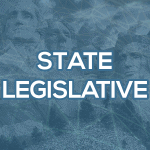In Washington, Congress has been consumed by the government shutdown that just concluded, while the regulatory agencies have continued moving forward with rulemaking and rollbacks.
The CFPB continues to be a center of institutional turbulence. Recently the Trump Administration formally declared the Bureau’s funding mechanism unlawful, arguing that because the Federal Reserve System has not reported combined earnings under the statute that funds the Bureau, the CFPB cannot draw funds from the Fed and may run out of money by early 2026. This comes on the heels of a letter sent by Senate Democrats seeking detailed information about the Bureau’s unobligated balance, its civil-penalty fund, and any internal plans for workforce or enforcement reductions.
Recently, the Bureau accepted an audit from its Office of Inspector General (OIG) which found weaknesses in information-security, outdated software, undocumented risk-processes and weakened monitoring functions. The OIG noted that reduced staffing levels contributed to the data security gaps.
A federal judge has also intervened on other fronts, issuing an injunction halting the implementation of the Bureau’s “open banking” rule and forcing the agency to reopen rule-making questions around scope, cost, privacy, and security. Meanwhile the CFPB rescinded its non-bank registration rule, citing high compliance cost and limited consumer benefit.
At the Federal Communications Commission, a forthcoming rulemaking covers verified caller identity, foreign-origin call rules and streamlining legacy caller-ID and TCPA/DNC frameworks. RMAI is waiting for the rule to be formally published in the Federal Register. Combined with ongoing robocall legislation in Congress, these actions reflect growing attention to call center issues in Washington.
RMAI monitors, tracks, and responds to legislative and regulatory activity in all 50 states as the need arises. Backed by RMAI’s State Legislative Committee and a team of state lobbyists, RMAI educates legislators and regulators about the industry and the negative impacts or unintended consequences a bill would have on businesses and consumers. If you have an interest in volunteering in RMAI’s grassroots advocacy efforts, please contact RMAI General Counsel & Senior Director of Government Affairs David Reid at (916) 779-2492 or [email protected].
RMAI is synonymous with our governmental advocacy initiatives – it is one of the pillars which our association has been built upon – fighting for the interests of our members. Our association has been blessed with an unparalleled level of success in amending and stopping harmful legislation. A good measure of our success has come from the volunteer efforts of RMAI’s state legislative committee and the generosity of our members to the Legislative Fund which helps pay for our lobbying efforts.
In 2026, RMAI expects to see significant increased state legislative activity in the area of artificial intelligence as well as continued heightened activity related to laws impacting garnishment, collection and litigation restrictions, consumer notices, among other issues. How can you help? In December, RMAI Committee Interest Forms will be shared with the membership for 2026 committee assignments. Please consider joining our efforts in protecting the industry at the grassroots level by joining the State Legislative Committee.
Together we will continue to make a difference!
Ninth Circuit Affirms Ruling on Law Firm’s Bona Fide Error Defense
Watson v. Hassen, No. 24-916, 2025 U.S. App. LEXIS 28386 (9th Cir. Oct. 28, 2025)
A law firm sent a collection letter to a consumer and filed a collection lawsuit. The consumer filed an action against the firm alleging it violated the federal Fair Debt Collection Practices Act (“FDCPA”), the Oregon Unlawful Debt Collection Practices Act, and the Oregon Unlawful Trade Practices Act. The trial court granted the firm’s motion for summary judgment and the consumer appealed.
The U.S. Court of Appeals for the Ninth Circuit, in an unpublished opinion, began by stating it “need not decide whether [the law firm] violated the FDCPA because, even if it did, the bona fide error defense applies.” The FDCPA provides that “[a] debt collector may not be held liable in any action brought under this title if the debt collector shows by a preponderance of evidence that the violation was not intentional and resulted from a bona fide error notwithstanding the maintenance of procedures reasonably adapted to avoid any such error.” 15 U.S.C. § 1692k(c). Thus, the Court explained:
The defense has three factors: (1) the debt collector violated the FDCPA unintentionally; (2) the violation resulted from a bona fide error; and (3) the debt collector maintained procedures reasonably adapted to avoid the violation.
In this case, only the third factor was at issue, and the Court found the law firm did maintain “sufficient procedures to avoid overstating the debts.” Those procedures included, in part:
- Reviewing the accounting ledger provided by the creditor;
- Reviewing the contract signed and initialed by the consumer;
- Confirming the charges corresponded to the terms of the contract;
- Sending the initial collection letter to the consumer inviting the consumer to dispute the debt if inaccurate, and receiving no response.
Affirming the ruling of the trial court, the Court Appeals noted the consumer’s state law claims were waived since they were not raised in his opening brief.
Fourth Circuit Holds “Injury-in-Fact” Must Be Imminent in Data Breach Case
Holmes v. Elephant Ins. Co., No. 23-1782, 2025 U.S. App. LEXIS 26677 (4th Cir. Oct. 14, 2025)
An insurance company’s information system was breached, exposing the driver’s license numbers of almost 3 million people. Two separate pairs of consumers, C and H, and B and S, filed lawsuits against the company after being informed of the breach. The cases were consolidated as the claims were similar: “They spent time reviewing their credit and financial documents – time they would otherwise have spent on other productive activities,” and “the breach increased their risk of identity theft.” However, some of the claims differed:
- Consumers C and H alleged they found their driver’s license numbers posted on the dark web;
- Consumers H and S claimed the risk “caused them significant fear, anxiety, and stress”;
- Consumer H alleged “he experienced an uptick in texts and calls from spammers requesting his insurance policy information or posing as debt collectors.”
The trial court determined the consumers lacked Article III standing and granted the company’s motion to dismiss. The consumers appealed.
The U.S. Court of Appeals for the Fourth Circuit began by explaining that to establish Article III standing, “a plaintiff must show three things: (i) that he suffered an injury in fact that is concrete, particularized, and actual or imminent; (ii) that the injury was likely caused by the defendant; and (iii) that the injury would likely be redressed by judicial relief.” In this case, the issue was whether the consumers established the first requirement, “injury-in-fact.”
On appeal, the consumers asserted this requirement was met through: “(1) the actual compromise of their personal information in the breach; (2) the risk of future misuse of their personal information by other malicious actors; (3) the risk of having their personal information taken again in the future in another hack of [the company] and (4) the emotional distress and time spent monitoring their financial records to mitigate the likelihood of future harm.”
Addressing the first assertion, the Court explained that an intangible harm, i.e., one that is not physical or monetary, “must bear a close relationship to harms traditionally recognized as providing a basis for lawsuits in American courts” to be sufficiently “concrete.” Here, having the driver’s license numbers disclosed on the dark web bore a close relationship to the common-law tort of invasion of privacy, which “requires that the defendant (1) disclose (2) to the public (3) true but private information that would be highly offensive to a reasonable person and (4) is otherwise of no legitimate concern to the public.”
Accordingly, the court ruled that Consumers C and H had alleged facts sufficient to establish standing. The allegations of Consumers B and S fell short because they did not claim the hackers actually published or shared their driver’s license numbers.
The Court next ruled that the second and third assertions, future misuse of the information, fell short of establishing standing because the consumers failed to allege such use was imminent. Even Consumers C and H, who had their numbers posted on the dark web, failed with this assertion. The Court explained:
They do not allege that their driver’s license numbers have been misused by the hackers to date. So any future harm, given that the hackers have posted their information on the dark web, would presumably come from the intervening actions of independent malicious actors who might buy or otherwise obtain their compromised numbers. But they have not alleged facts that show that those intervening “independent decisionmakers” “will likely react in predictable ways” that will ultimately result in fraudulent impersonation. . . All this means that fraudulent impersonation will befall [Consumers C and H] only if other intervening malicious actors acquire their driver’s license numbers from the dark web and also acquire other pieces of their personal information and do so before their driver’s license numbers change.
Likewise, the assertion that their information was at risk because the company would likely again be targeted by hackers failed for lack of imminence. The consumers made “only general allegations that ‘it is axiomatic’ that a database hacked once ‘due to inadequate security measures’ is thereby at risk of imminent additional breaches ‘unless those security measures are improved,’” and provided “no reason to think this is true – or that hackers would target [the company] again, specifically, as opposed to other companies that have recently suffered data breaches.”
Finally, the Court addressed the assertion that the consumers established standing sufficient for damages as a result of “spending time monitoring their financials and by feeling emotional distress in response to the data breach.” On this, the Court held that “if time spent and emotional distress felt are concrete injuries, they may serve as the sole basis for standing to recover damages only when incurred in response to a separate imminent harm. They do not suffice for standing on their own.” Here, as the Court previously explained, Consumers B and S failed to allege any imminent harm and therefor lacked standing “to recover damages for any time spent or emotional distress felt too.”
Thus, affirming in part, reversing in part, and remanding the matter to the trial court, the Court of Appeals held that Consumers C and H established an injury-in-fact and could recover damages for that injury alone, Consumers B and S failed to establish any injury-in-fact, and none of the consumers could recover for “speculative future injuries or for injuries incurred only in response to those speculative injuries.”
Navigating 2026: The Annual Collections Tech Readiness Survey. Shape the benchmark for digital transformation in collections. Take the survey.
Contribute to the Legislative Fund with Your 2026 Renewal
Renewals were sent out last month via mail and email. Please note the suggested voluntary donation included on your invoice. When you donate to RMAI’s Legislative Fund, you are helping to continue the fight for the receivables management industry, so please consider donating with your renewal payment this year. If you have already renewed your membership and would still like to make a donation to the Legislative Fund, you can donate here.
Donate an Item for the Annual Conference Silent Auction
As we gear up for the 2026 Annual Conference Silent Auction, RMAI is seeking new and returning item donors to help make this auction great. Donating an item to the Silent Auction will provide you with brand recognition for your business in the auction catalog and as a donor, and donating an item helps support RMAI’s Legislative Fund. Committee members are beginning their outreach to donors now, so be on the lookout for correspondence!
About the Legislative Fund
RMAI actively monitors and responds to state and federal measures affecting how our members do business. Your contributions to the Legislative Fund extend the reach of RMAI’s advocacy across the country where and when needed. Read more about the Legislative Fund.
Upcoming Webinars
Register for our November 19th, Optimizing Debt Collection and Probate Processes: Best Practices, Auditing Strategies, and Process Improvements webinar where our presenters will explore the complexities of debt collection within probate processes, focusing on effective strategies and best practices.
Register for the fifth and final webinar in our CCO Webinar Series on December 11th, A CCO’s Guide to Impactful Board and Executive Reporting where our presenters will provide Chief Compliance Officers with the tools to tell their compliance story, focusing on:
- The WHY: The expectations of Board oversight and a CCO’s responsibilities,
- The WHAT: Key focus areas and data points to emphasize, and
- The HOW: Pulling together and presenting an effective report that resonates with and engages leadership.
Recorded Webinars
Recorded on October 22, 2025 you can register for Litigation Trends in Consumer Finance: What’s New, What’s Next, and How to Mount an Effective Defense where our presenters will share insights, case law trends, and tactical guidance to help financial institutions, debt collectors, and their counsel prepare for what’s ahead.
Chief Compliance Officer Webinar Series (Package or Individual)
The Chief Compliance Officer Webinar Series package includes five courses focusing on developing and maintaining your compliance program within your company. You can Register for all five (5) or pick and choose individual courses.
- RECORDED Register From Paper to Practice: Building Policies & Procedures that Protect, Perform, and Prevail (Receive as a recording when package is purchased)
- RECORDED Register From Mandate to Motivation: Building a Risk-Proof and Engaging Compliance Training Program (Receive as a recording when package is purchased)
- RECORDED Register Building a Risk Assessment and Audit Program Tailored to the Size and Scale of Your Organization (Receive as a recording when package is purchased)
- RECORDED Register From Onboarding to Offboarding: Building Rock-Solid Vendor Partnerships in Collections (Receive as a recording when package is purchased)
- A CCO’s Guide to Impactful Board and Executive Reporting – December 5, 2025
To see full descriptions of each webinar check out our website by clicking this link.
Pricing: Package | Member: $200 | Non-Member: $350
Pricing: Individual | Member: $64 | Non-Member: $94
Click here for more information on our live and recorded educational webinars. Contact Shannon Parod-Tsui at [email protected] to find out more about sponsoring an RMAI webinar.
Congratulations to our new and renewed Certified Receivables Compliance Professionals (CRCP), renewed Certified Receivables Businesses (CRB), and renewed Certified Receivables Vendors (CRV)!
CRCP New
Amy Mitchell, Crown Asset Management
Kristi Posson, Highpoint Law Office
Joe Vice, The Receivers Office
CRCP Renewals
Sarah Chouinard, Cavalry Portfolio Services
Michael Johnson, Jefferson Capital Systems
Angela Kresila, Troy Capital
Stacy Stein, Mountain Peak Law Group
Dave Ross, Crown Asset Management
Jerry Terrill, Superlative RM
Rance Willey, Troy Capital
CRB Renewal
Absolute Resolutions Corp.
CRV Renewals
Garnet Capital Advisors
National Loan Exchange
View all certified businesses and vendors.
View all certified individuals.
See Your Certified Business in Lights at the Annual Conference
If you are currently a certified business or are going through the process, you will see your company’s name on our list of certified businesses at the 2026 Annual Conference. For those of you working on getting your business certified, the last chance to get your name on the list is January 1, 2026.
Contact Shannon Parod-Tsui @ [email protected] or call 916-482-2590.
View our full list of certification resources.
Reminder to Renew for 2026!
Thank you to those who have already renewed their membership for 2026! We look forward to continuing to provide you with ongoing valuable networking opportunities, timely education, helpful resources and comprehensive and robust state and federal advocacy! If you have not yet renewed your membership for 2026, we encourage you to do so by December 31, to avoid a late fee and continue to enjoy the benefits of being a part of RMAI – including discounted rates for Annual Conference! To pay your invoice, please login here. If you require assistance, please call the RMAI office at (916) 482-2462 or email [email protected].
Serve on an RMAI Committee, Task Force and/or Working Group
Primary Contacts and Additional Membership Representatives are eligible to serve on RMAI committees, task forces and/or working groups. The annual Committee Interest Survey will be distributed to Primary Contacts and Additional Membership Representatives next month. Look out for the survey and respond if you want us to know your participation interests. You can view a full list of our committees here.
Nominate an Industry Leader for an Award
Click here to learn more about the awards and nominate industry leaders by December 1. Awards will be presented at RMAI’s 2026 Annual Conference.
Welcome, New Members
BMG Money | FL
Maxyfi | CO
Carmel Servicing, LLC | IN
Contiinex | DE
For a complete list of RMAI members (including contact information), login to check out the Member Directory.
2026 RMAI Annual Conference | February 9-12, 2026

RMAI Legislative Fund Contributors November 14, 2024 – November 14, 2025
DIAMOND
Cavalry Investments, LLC
Crown Asset Management, LLC
Midland Credit Management
PRA Group, Inc.
Resurgent Holdings, LLC
Second Round, LP
Velocity Portfolio Group, Inc.
TITANIUM
Financial Recovery Services, Inc.
Halsted Financial Services, LLC
TRAKAmerica
PLATINUM
Blitt and Gaines, P.C.
Cascade365 Family of Companies
Pharus Funding, LLC
Plaza Services
Rausch Sturm, LLP
Stenger & Stenger P.C.
T & I Enterprises, LLC
GOLD
Klima, Peters & Daly, P.A.
Security Credit Services, LLC
SILVER
Andreu, Palma, Lavin & Solis, PLLC
Central Portfolio Control, Inc
D & A Services, LLC
DebtNext Software, LLC
InvestiNet, LLC
Jefferson Capital Systems, LLC
National Credit Adjusters, LLC
Pressler, Felt and Warshaw, LLP
Velo Law Office
BRONZE
Couch Lambert
Resurgence Capital, LLC
Stillman Law Office
Tromberg, Miller, Morris & Partners, PLLC
BRASS
Advancial Federal Credit Union
AgreeYa Solutions, Inc.
Aldridge Pite Haan, LLP
American Coradius International LLC
ARM Compliance Business Solutions LLC
Balbec Capital
Bankrupt Debt Services
Bedard Law Group, P.C.
Bread Financial
Buffaloe & Vallejo, PLC
CASA Receivables Management, LLC
CBE Companies
Cedar Global Solutions LLC dba Remote Scouts
Channel Payments, Inc.
CMS Services
CNG/Axcess Financial Services, Inc.
Collection Attorneys USA LLC
CompuMail Information Systems
Connect International
ConServe
Cornerstone Licensing Services
Credit Brokers LLC
Credit Control, LLC
Credit Corp Solutions Inc.
FDR Alliance LLC
FLOCK Specialty Finance
FMS, Inc.
ForgiveCo PBC Inc
Frost Echols LLC
- Reynolds Sims & Associates, P.C.
Genesis Recovery Services
Gordon, Aylworth & Tami, P.C.
Grassy Sprain Group, Inc
Guglielmo & Associates, PLLC
InterProse
Kino Financial Co., LLC
Mandarich Law Group LLP
Markoff Law LLC
MauriceWutscher LLP
Moss & Barnett, P.A.
Mountain Peak Law Group, PC
National Debt Holdings, LLC
National Enterprise Systems, Inc.
National Loan Exchange, Inc.
National Recovery Associates, Inc.
NCB Management Services, Inc.
Nelson & Kennard
NICE
Nutun CX (PTY) LTD
Nuvei Technologies Inc.
PaymentVision (Autoscribe)
PCI Group Inc.
Premier Bankcard
Premium Asset Recovery Corp (PARC)
Primeritus Financial Services, Inc.
Quality Acceptance
Remitter
Revenue Assistance Corporation dba Revenue Group
RevSpring
Robinson Hoover & Fudge, PLLC
Roosen, Varchetti & Olivier, PLLC
SAM – Solutions for Account Management, Inc.
Scott & Associates, PC
Shepherd Outsourcing, LLC
Smith Debnam Narron Drake Saintsing & Myers, LLP
Stone Creek Financial Inc.
Stone, Higgs & Drexler
Superlative RM
Suttell & Hammer
The Cadle Company
The Law Offices of Ronald S. Canter, LLC
The Moore Law Group
The Oakes Law Firm, LLC
Troy Capital, LLC
VeriFacts, LLC.
Vertican Technologies, Inc.
Womble Bond Dickinson
Yrefy, LLC
Zarzaur & Schwartz, P.C.
OTHER
Alliance Credit Services, Inc.
C & E Acquisition Group, LLC
Ceteris Portfolio Services LLC dba J.J. Marshall & Associates
Cohen & Cohen Law, LLC
Complete Credit Solutions, Inc.
Consuegra & Duffy, PLLC
Convoke, Inc.
Credit Management Corporation
D1AL
Denali Capital, LLC
First National Collection Bureau
Harvest Strategy Group, Inc.
Hilco Receivables, LLC
Kaleo Legal
London & London
Martin Golden Lyons Watts Morgan PLLC
Payment Savvy, LLC
Pro Forma Inc
SIMM Associates, Inc.
Sonnek & Goldblatt, Ltd.
Tavelli Co., Inc. dba Tavco Credit Services
UHG I LLC























